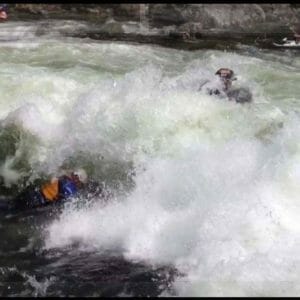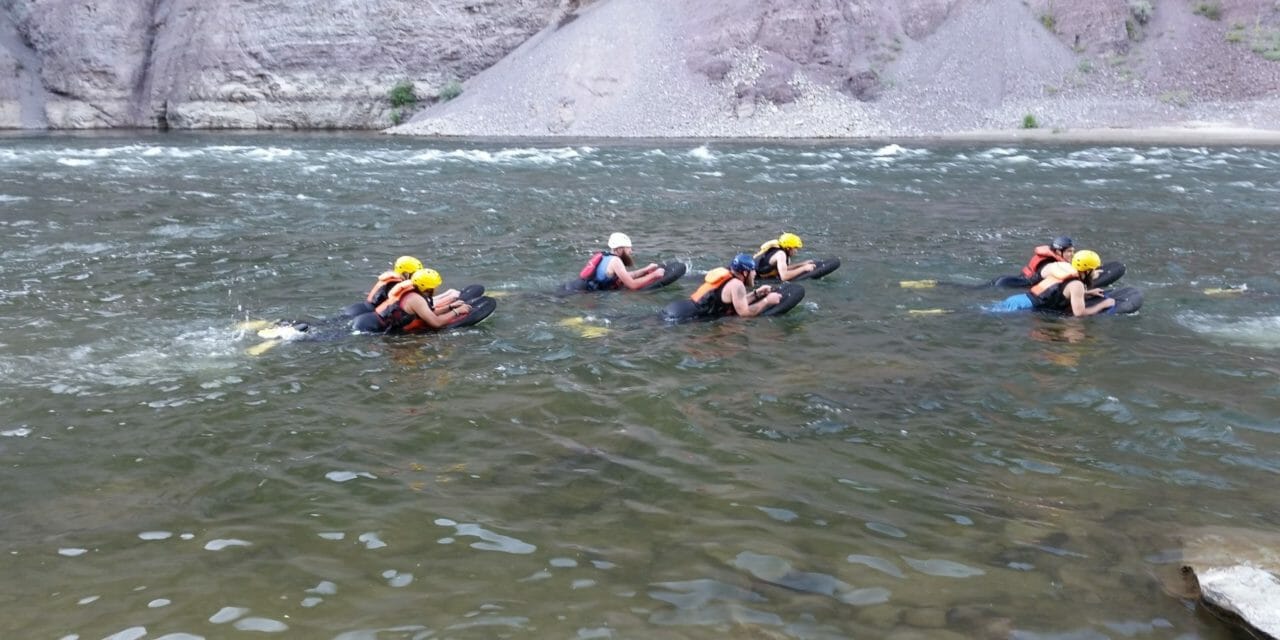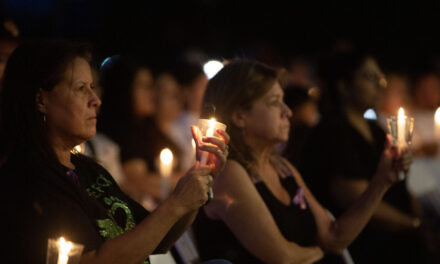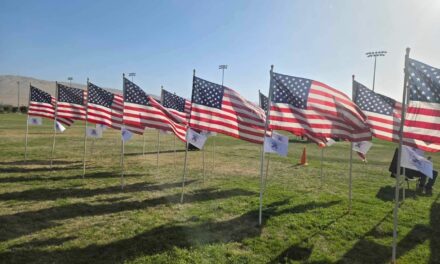What started out as a doctorate project for Janna Sherill turned into a “real-life” program for combat veterans living with post-traumatic stress disorder in Montana.
The program, called Xsports4vets, started in 2010 as a pilot riverboarding course for combat veterans that combined elements of successful PTSD and reintegration treatment programs. The program continues today and has served more than 1,000 veterans with an expanded list of sports that includes rock climbing, trike flying, whitewater rafting and more.
Veterans make up nearly 12 percent of the population in Montana, according to the Montana Department of Labor and Industry.
Sherrill’s project began four years after she tried to convince her stepbrother, Spc. Christopher Michael Dana, to seek treatment for his “daymares.” He had been home from serving in Operation Iraqi Freedom for one month at that point. To help convince him, Sherrill shared that she wrestled with PTSD, caused by “more than one traumatic event.” She declined to elaborate on her traumatic events.
“He promised to seek help if the symptoms got worse,” Sherrill said. Eighteen months later, the 23-year-old shot himself.
“I found out at his funeral that he had not really talked to anyone,” Sherrill, 38, said. “I carried that guilt around for a long time.”
She channeled that grief and guilt into studying PTSD, cutting edge treatments and the barriers that keep veterans from seeking assistance. While completing interviews, she met a veteran, Jesse Scollin, who was contemplating suicide.
“I just couldn’t bear the thought of that happening to someone I knew again,” Sherrill said. “That’s when I switched my doctorate to a real-life program. He agreed to help.”
She used research to create a system around him and integrated educational components. She wanted something that would help reduce, even eliminate the stigma and discomfort with seeking help from the Department of Veterans Affairs. They fear if they seek treatment for mental health reasons they are forever tagged as being flawed and are passed over for promotions and more.
Scollin explained to Sherrill how the sport of riverboarding made him want to be alive again. His story mirrored with her panic-fueled experiences rock climbing. Once terrified of heights, she learned to steady her heart rate on the rock face. She described it as a “critical discovery” on her personal journey with the disorder.
She found a sweet spot not only for herself but also for combat veterans.
According to the Montana Department of Health and Human Services, experts think PTSD occurs:
· In about 30 percent of Vietnam veterans, or about 30 out of 100 Vietnam veterans.
· In as many as 10 percent of Gulf War (Desert Storm) veterans, or in 10 veterans out of 100.9
· In about 6 percent to 11 percent of veterans of the Afghanistan war (Enduring Freedom), or in 6 to 11 veterans out of 100.
· In about 12 percent to 20 percent of veterans of the Iraq war (Iraqi Freedom), or in 12 to 20 veterans out of 100.
As the program began to attract veterans, Jeremiah Mercer attended one of the riverboarding experiences where he met Sherrill. It turns out he had served in Iraq with her stepbrother, Dana. The two formed an immediate bond.
He has been an active in the program ever since as both a participant and occasional volunteer.
“The best thing veterans can do is hang out with each other,” Jeremiah Mercer said in a telephone interview with Health Central. “Veterans are each other’s best support system.”
Mercer, 36, of Missoula, Montana, served a combat tour in Iraq from 2004 to 2005. He lives with PTSD.
“By day, you’re helping build the community and taking supplies into the schools and by night you’re raiding their homes and arresting their dads and brothers,” Mercer said. “It’s crazy. Seeing dead kids, the kids you saw in school that day, messes with you. You don’t have the luxury of thinking about it. You have a job to do.”
But when he returned home and all the fanfare of “Welcome Home” celebrations waned, those images and actions started to take a toll.

(photo courtesy of Jeremiah Mercer)
“You’re left with all those thoughts and you don’t know what to do with them,” Mercer said. “I started self-medicating and had a problem with alcohol. At Xsports4vets, you’re getting together with other vets who have had like experiences so my guard is down. We tend to think civilians judge us.”
The activities, he added, are an adrenalin rush, a high that mimicks the adrenaline rush of a war zone.
But, he added, “You’re free.”
As for Sherrill, the biggest success of the program has been personal.
“I became more comfortable talking to veterans,” Sherrill said. “Veterans freaked me out for years. It was so painful to have Chris commit suicide. Every time I met someone deployed it brought all that back.”
She is proud that the program she founded seven years ago is still around.
Sherrill also takes pride in her co-founder. He never succumbed to those ugly and enticing thoughts of suicide.
“I love watching him face battles and overcome them and accomplish so much,” she said. “He’s now helping other veterans.”
She has discovered that riverboarding can be very empowering in combating her own PTSD.
“It’s very difficult but I felt it reconnected me with the person I was,” Sherrill said. “You lose a core part of yourself with PTSD.”
This story first appeared on HealthCentral.com.







